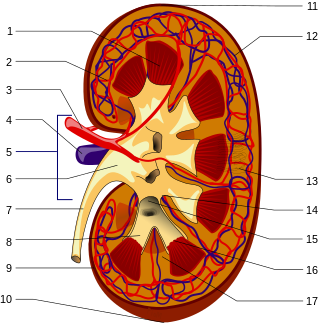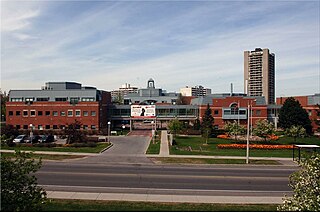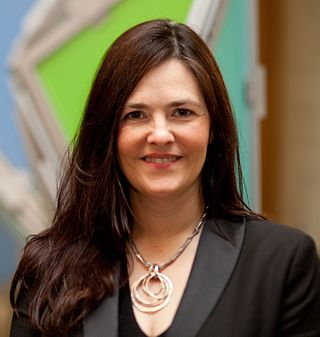
Nephrology is a specialty of adult internal medicine and pediatric medicine that concerns the study of the kidneys, specifically normal kidney function and kidney disease, the preservation of kidney health, and the treatment of kidney disease, from diet and medication to renal replacement therapy. The word "renal" is an adjective meaning "relating to the kidneys", and its roots are French or late Latin. Whereas according to some opinions, "renal" and "nephro" should be replaced with "kidney" in scientific writings such as "kidney medicine" or "kidney replacement therapy", other experts have advocated preserving the use of renal and nephro as appropriate including in "nephrology" and "renal replacement therapy", respectively.

Organ donation is the process when a person authorizes an organ of their own to be removed and transplanted to another person, legally, either by consent while the donor is alive, through a legal authorization for deceased donation made prior to death, or for deceased donations through the authorization by the legal next of kin.

The Leukemia & Lymphoma Society (LLS), a 501(c)(3) charitable organization founded in 1949, is a voluntary health organization dedicated to fighting blood cancer world-wide. LLS funds blood cancer research on cures for leukemia, lymphoma, Hodgkin's disease, and myeloma. It provides free information and support services, and it advocates for blood cancer patients and their families seeking access to quality and affordable care.

The Toronto General Hospital (TGH) is a major teaching hospital in Toronto, Ontario, Canada and the flagship campus of University Health Network (UHN). It is located in the Discovery District of Downtown Toronto along University Avenue's Hospital Row; it is directly north of The Hospital for Sick Children, across Gerrard Street West, and east of Princess Margaret Cancer Centre and Mount Sinai Hospital. The hospital serves as a teaching hospital for the University of Toronto Faculty of Medicine. In 2019, the hospital was ranked first for research in Canada by Research Infosource for the ninth consecutive year. Since 2020, it has been ranked among the top 5 hospitals in the world by Newsweek.

Canadian Blood Services is a non-profit charitable organization that is independent from the Canadian government. The Canadian Blood Services was established as Canada's blood authority in all provinces and territories except for Quebec in 1998. The federal, provincial and territorial governments created the Canadian Blood Services through a memorandum of understanding. Canadian Blood Services is funded mainly through the provincial and territorial governments.
Eye banks recover, prepare and deliver donated eyes for cornea transplants and research. The first successful cornea transplant was performed in 1905 and the first eye bank was founded in 1944. Currently, in the United States, eye banks provide tissue for over 80,000 cornea transplants each year to treat conditions such as keratoconus and corneal scarring. In some cases, the white of the eye (sclera) is used to surgically repair recipient eyes. Unlike other organs and tissues, corneas are in adequate supply for transplants in the United States, and excess tissue is exported internationally, where there are shortages in many countries, due to greater demand and a less-developed eye banking infrastructure.

The United Network for Organ Sharing (UNOS) is a non-profit scientific and educational organization that administers the only Organ Procurement and Transplantation Network (OPTN) in the United States, established by the U.S. Congress in 1984 by Gene A. Pierce, founder of United Network for Organ Sharing. Located in Richmond, Virginia, the organization's headquarters are situated near the intersection of Interstate 95 and Interstate 64 in the Virginia BioTechnology Research Park.

Organ transplantation in China has taken place since the 1960s, and is one of the largest organ transplant programmes in the world, peaking at over 13,000 liver and kidney transplants a year in 2004.

The University of Alberta Hospital (UAH) is a research and teaching hospital in Edmonton, Alberta, Canada. The hospital is affiliated with the University of Alberta and run by Alberta Health Services, the health authority for Alberta. It is one of Canada's leading health sciences centres, providing a comprehensive range of diagnostic and treatment services to inpatients and outpatients. The UAH treats over 700,000 patients annually.

The National Organ Transplant Act (NOTA) of 1984 is an Act of the United States Congress that created the framework for the organ transplant system in the country. The act provided clarity on the property rights of human organs obtained from deceased individuals and established a public-private partnership known as Organ Procurement and Transplantation Network (OPTN). The OPTN was given the authority to oversee the national distribution of organs.
The Canadian Organ Replacement Registry (CORR) is a health organization started by Canadian nephrologists and kidney transplant surgeons in 1985 in order to develop the care of patients with kidney failure. In the early 1990s data on liver and heart transplantation were added to the registry. In 1995, CORR entered into an agreement with the Canadian Institute of Health Information to house the registry in CIHI. The board of directors of CORR receives advice from its scientific advisory committee. In recent years a research subcommittee was formed to promote research using data from the registry.
The Ontario Online Donor Registry is a website where Ontario residents, age 16 and older, can register their consent to be an organ and tissue donor. This registry was created to help ease questions and ambiguities with organ donor wishes. The virtual registry also increases Ontario donations with increased accessibility. The registration process can be done through beadonor.ca. Online donor registries have also become popular in the United States, where one can register through Donate Life America; Malaysia, registering through their National Transplant Registry; and Saudi Arabia, registering through the Saudi Center for Organ Transplantation.

MOHAN Foundation is a not-for-profit, registered non-government charity organisation in India that works in the field of deceased organ donation and transplantation. MOHAN is an acronym for Multi Organ Harvesting Aid Network. It has offices in Chennai, Hyderabad, Bengaluru, Delhi, Mumbai, Chandigarh, Nagpur, Jaipur and information centers at Kerala and Imphal.

Kim Solez is an American pathologist and co-founder of the Banff Classification, the first standardized international classification for renal allograft biopsies. He is also the founder of the Banff Foundation for Allograft Pathology.

Ziad Aboultaif is a Canadian politician first elected to represent the riding of Edmonton Manning in the House of Commons in the 2015 federal election.

Nancy Baxter is a Canadian surgeon who is a professor and the Head of Melbourne University's School of Population and Global Health, while continuing to maintain her appointment as Professor of Surgery in the Department of Surgery and the Institute of Health Policy, Management and Evaluation at the University of Toronto. She is a scientist with the Li Ka Shing Knowledge Institute and is a senior scientist in the Cancer Theme Group with the Institute for Clinical Evaluative Sciences (ICES). Baxter has board certifications through the American Board of Surgery (2000) and the American Board of Colon and Rectal Surgery (2002). She is a Fellow of the American College of Surgeons, the Royal College of Physicians and Surgeons of Canada, and the American Society of Clinical Oncology.
BC Transplant Society (BCTS) founded in 1985 is now an agency of Provincial Health Services Authority (PHSA) in the Canadian province of British Columbia that registers consent to be donors of organs for Organ transplantation.
The Trillium Gift of Life Network was an agency of the Government of Ontario responsible for the province's organ donation strategy, promotion, and supply. Ronnie Gavsie was the President & CEO. The agency maintained the popular BeADonor.ca website. It was subsequently subsumed under Ontario Health in 2019.
Heather Joan Ross is professor of medicine at the University of Toronto in Ontario, Canada. Ross is a scientific lead for the Ted Rogers Centre for Heart Research, the director of the Ted Rogers Centre of Excellence in Heart Function and Director of the Cardiac Transplant Program at Toronto General Hospital. She has been the president of the Canadian Cardiovascular Society and the Canadian Society of Transplantation.

The International Society for Heart and Lung Transplantation (ISHLT), established in 1981, is a professional organization committed to research and education in heart and lung disease and transplantation. It holds annual scientific meetings and publishes The Journal of Heart and Lung Transplantation. It also holds the worlds largest registry of heart and lung transplant data.













